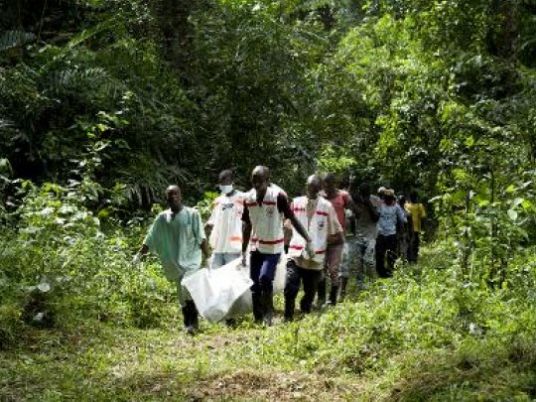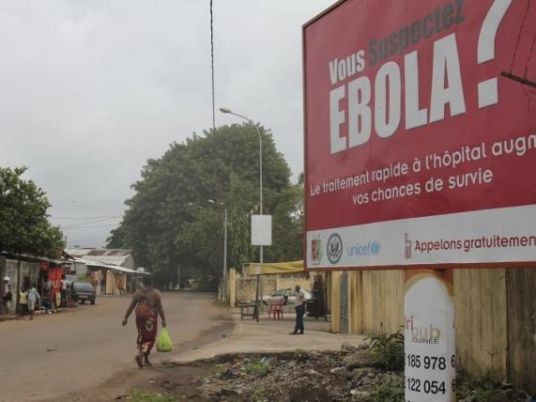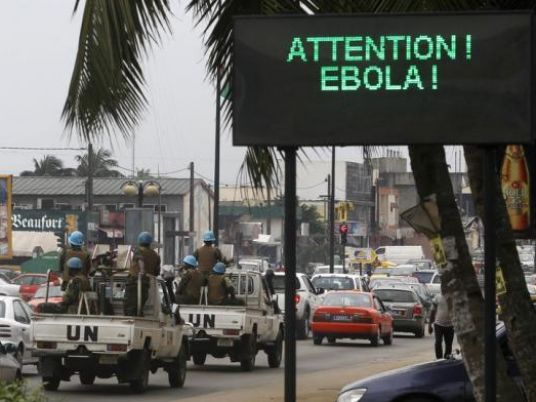
Despite the sweeping outbreak of the Ebola virus in most West African countries and recently the United States, it might sound like a remote threat for the people in Egypt; especially since the World Health Organization (WHO) has not yet mentioned Egypt in any advisories and currently classifies the nation as safe.
Nearly 7,000 people have now died from Ebola in West Africa, with the latest report from the World Health Organization counting over 1,200 more deaths than in a toll given on Wednesday.
The Egyptian Health Ministry confirmed that Egypt is Ebola free; the Health Minister Adel Adwy emphasized that the country is taking all precautions and the quarantine in the airports is checking properly each visitor comes from the West African countries.
In September 2014, Egypt's foreign ministry declared travel warnings for the seven countries hit by the Ebola, according to Egypt news agency MENA, as the virus continues to stir fears worldwide. The countries are Guinea, Liberia, Sierra Leone, Angola, Côte d'Ivoire, Togo and Senegal.
Echoing the Egyptian government statements, the World Health Organization in Egypt spokesperson Baha Elkoussy told Egyptian media that Ebola virus does not represent a threat to Egypt and Arab countries and differs completely from the Corona virus, which went viral across Saudi Arabia and affected large numbers in neighboring countries.
On the other hand, a young Egyptian virologist Islam Hussien has a different point. He is much concerned about the outbreak arguing that Cairo is only one flight away from the badly struck countries, though many Egyptians mistakenly believe the country is far away.
"That was the same feeling in the United States and now there are cases in Dallas. The virus is not far it can land anywhere at any time, all countries should be prepared as overconfidence is a fatal mistake," he said.
Hussien stressed on the point, however, that in the worst-case scenario of receiving an Ebola patient, there is no reason to panic if Egypt has healthcare facilities equipped with proper isolation units and trained physicians.

Officials hope Egypt has come a long way since the 1970s, when a string of diseases began to pop up due to lack of healthcare worker's lack of proper training and technique, the most noteworthy being hepatitis C. Back then, following a nationwide campaign to combat schistosomiasis, the rates of people infected with hepatitis C doubled as healthcare workers were not using sterilized needles.
The WHO now says that almost every family in Egypt is affected by hepatitis C, as the country has recorded the highest infection rates of hepatitis C in the world, with up to 18.1 percent of its population infected with the virus.
The Cancer rates in Egypt jumped to,600 people newly diagnosed with cancer in 2012 One of the pivotal reasons were the 37 cancer causing pesticides which have been brought by the government of the ousted president Hosni Mubarak These chemicals had been banned from entering the country in 1996, but surprisingly were re-allowed in 1998 until 2004.
Moreover, Egypt suffers a considered rate of end-stage renal disease not only due to pollutant water with sewage but also the rise in uncontrolled diabetes mellitus in the country which deems the leading cause of most renal failures.
What do Egyptians think of Ebola?
Finding people concerned about Ebola can seem like searching for a needle in a haystack, as even the five-letter word sounded unfamiliar to most of them.
"Ebola! Oh no more disasters! Enough!" said Ahmed El-Seoudi, 27, a computer engineer. He explained that the country is already flooded with disasters, and society is already saturated with political and economic troubles. Besides, he said, Egypt has been struggling with deadly diseases for a long time.
Hossam al-Hawary, 35, factory owner was careless saying that the outbreak does not weigh on him because he already in "deep troubles" due to political turbulences and troubled economic situation over the last three years.
"Over the last three years, we have been stuck in a downward spiral of a sick economy, increasing gap between the incomes and spending, in addition to the vague and chaotic political scene, so feeling down and depressed is a normal outcome," he said. "So how could my mind be able to think about Ebola or anything else?"
"I am not afraid," said Doaa Farid, 21, journalist at Daily News Egypt.
"Five years ago, we were scared from the swine flu, and I remember all the strict precautions were taken to combat the virus and media exaggerated in covering the number of people who were infected and died, and in less than one year, everything suddenly disappeared and I don't know the reason," she sighs.
Farid believes even if Ebola hit Egypt, media will extensively cover the issue and then everything will disappear again.
Disagreeing with Farid, Shaimaa Raffat, 25, social media expert showed her concerns over what she said were the media's and government's intentional opacity in the coverage of Ebola outbreak, which makes her frightened that Ebola could hit the country and nobody would know.
Meanwhile, Ahmed Abdel Hamid, who lives in Menoufia, a rural city in Egypt, expressed his fears to newspaper Al-Shourok because one of the residents of the city came back from Equatorial Guinea, and he could be infected by the virus.
With little feedback, it seems as though Egypt's political and economic problems dominate the Egyptian dialogue.


